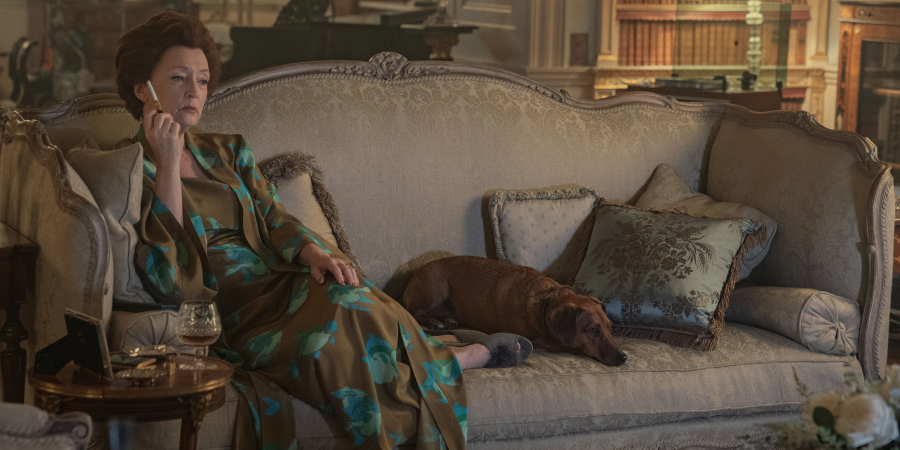Fans of Princess Margaret — and Lesley Manville, the actor who has played the late Countess of Snowdon in seasons 5 and 6 of “The Crown” — have had to wait patiently in the final stretch of the Netflix series as it dramatized the death of Diana, Princess of Wales, and its long, painful aftermath.
But “Ritz,” released with the final batch of episodes last week, gives lonely, lovelorn Margaret a beautiful farewell, while paying tribute to the complicated bond she shared with her sister, Queen Elizabeth II (Imelda Staunton).
Written by series creator Peter Morgan and Meriel Sheibani-Clare, the episode cuts between two timelines. In the late ‘90s and early ‘00s, Margaret’s health is in decline as she suffers a series of increasingly severe strokes. Largely ignoring the advice of her doctors, she continues to drink, smoke and live decadently — partying in Mustique, gobbling up jam tarts and at one point snapping at her sister, “I’d rather die than do exercise.” In the emotional climax of the episode, Margaret gathers the strength to put on some heels and trek to the Ritz Hotel in London to celebrate her 70th birthday — and listen to a moving, empathetic tribute from her sister.
Meanwhile, on V-E Day in 1945, the young sisters sneak out of Buckingham Palace to celebrate the end of World War II with a night of dancing at the Ritz. The dutiful future queen, still dressed in her military uniform, enjoys a brief, blissful moment of normalcy, while Margaret, in hindsight, appreciates the freedom her sister later sacrificed. (The charming tale is rooted in fact: On the 40th anniversary of V-E Day in 1985, the queen shared how she and her sister slipped out of Buckingham Palace to celebrate with the crowds.)



